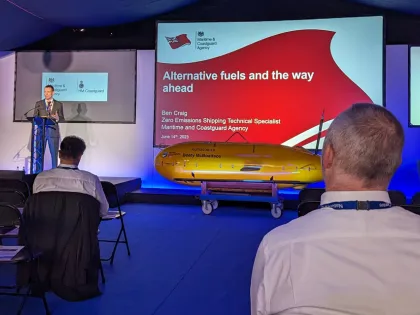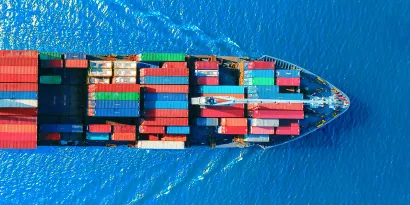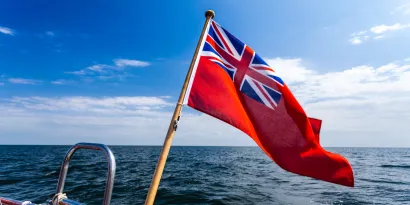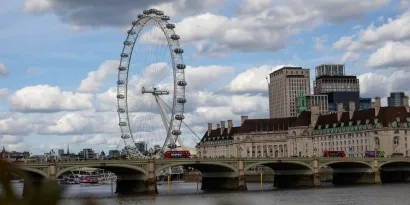
Future fuels are key to decarbonisation in shipping and finding ways to overcome the challenges with current technology is the crucial next step, according to the Maritime and Coastguard Agency’s Zero Emissions Shipping Technical Specialist.
Ben Craig recently gave a keynote speech focused on this issue at the National Oceanographic Centre (NOC), as part of the sustainability theme of the Marine Autonomy and Technology Showcase (MATS 2023).
His talk provided a summary of future fuels, their suitability to different vessels, likely future availability and cost, as well as the key challenges and current applications.

Remotely operated submersibles like Boaty McBoatface (pictured, as part of Ben's keynote talk) have been used to assess the long-term stability of carbon capture and storage sites in the North Sea, critical to the production of low-carbon hydrogen and ammonia.
Ben said: “It generated a lot of conversation about the future decarbonisation pathways of NOC’s vessels. The event demonstrated that the MCA is willing and continues to actively engage with industry by sharing decarbonisation knowledge for the benefit of the sector at a time when many operators are uncertain of their own route to decarbonisation.”
The talk highlighted and discussed a potential risk of the industry adopting technology that runs on fuels – biofuels and methanol – that are not in endless supply to meet the energy needs of the sector, leading to future issues with abandoned assets due to lack of fuel availability.
Industry experts discussed how to encourage operators to first secure access to the fuel before opting for a specific vessel.
Ben added: “There are no easy answers available, yet. The options now for operators are to maximise efficiency measures, and to build ready for a truly zero-carbon fuel such as ammonia, hydrogen or battery-electric – or to seek a supply agreement for methanol or biofuel.
“But this is why we need to continue to hold these conversations, to prevent future problems such as these and to encourage solutions.”
-
Share


